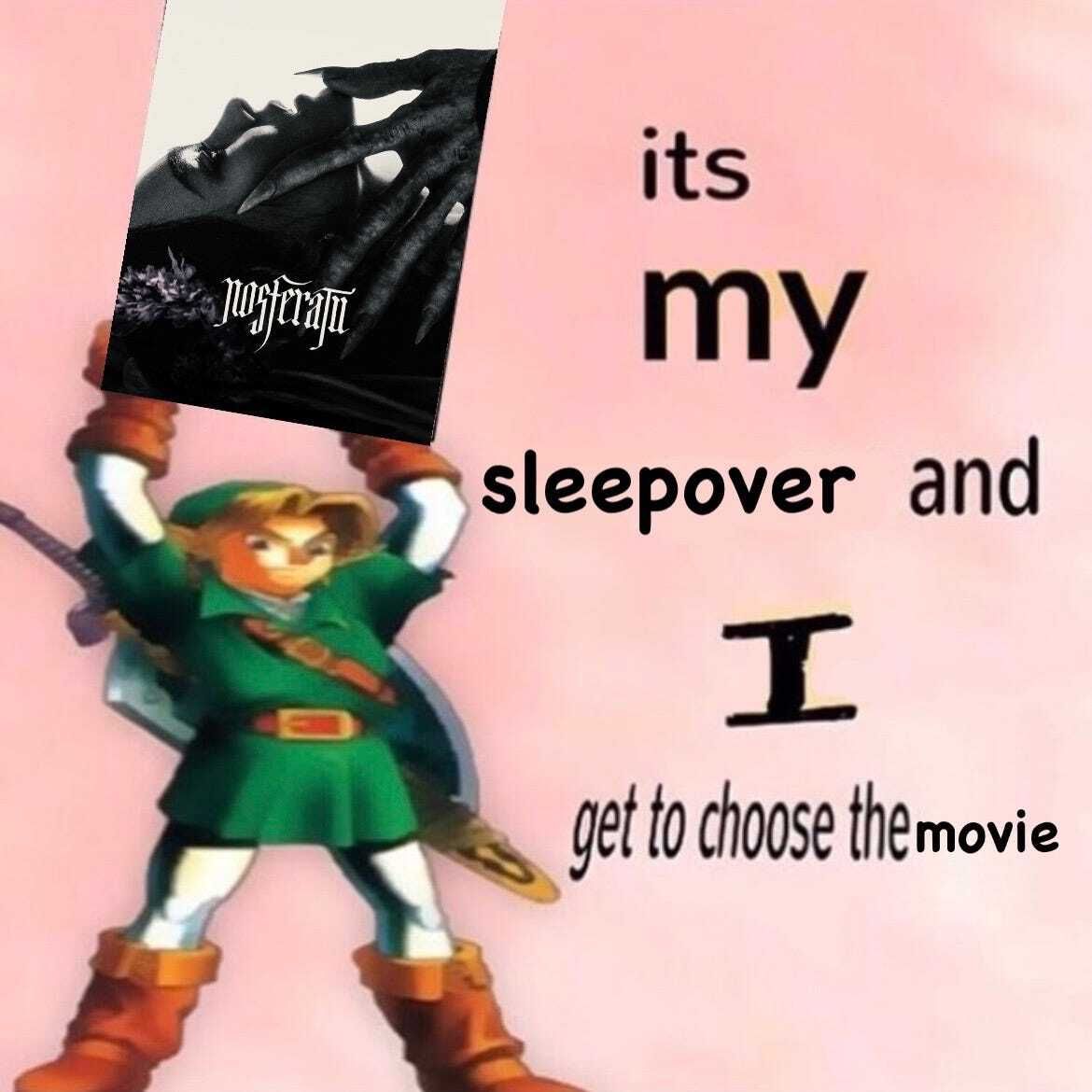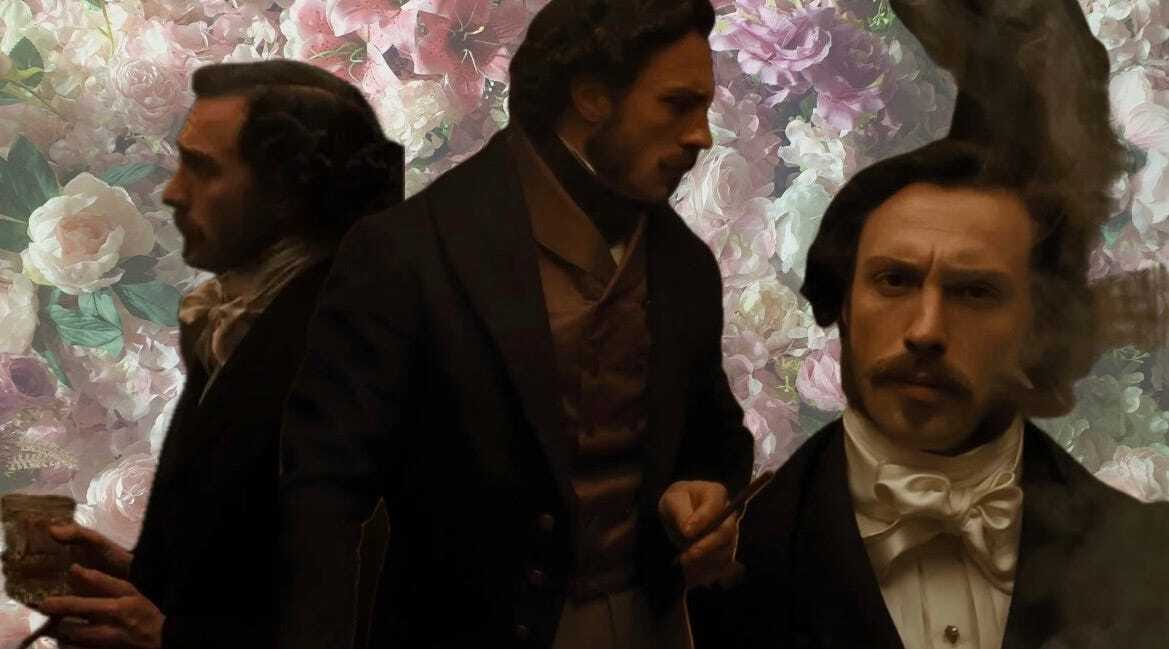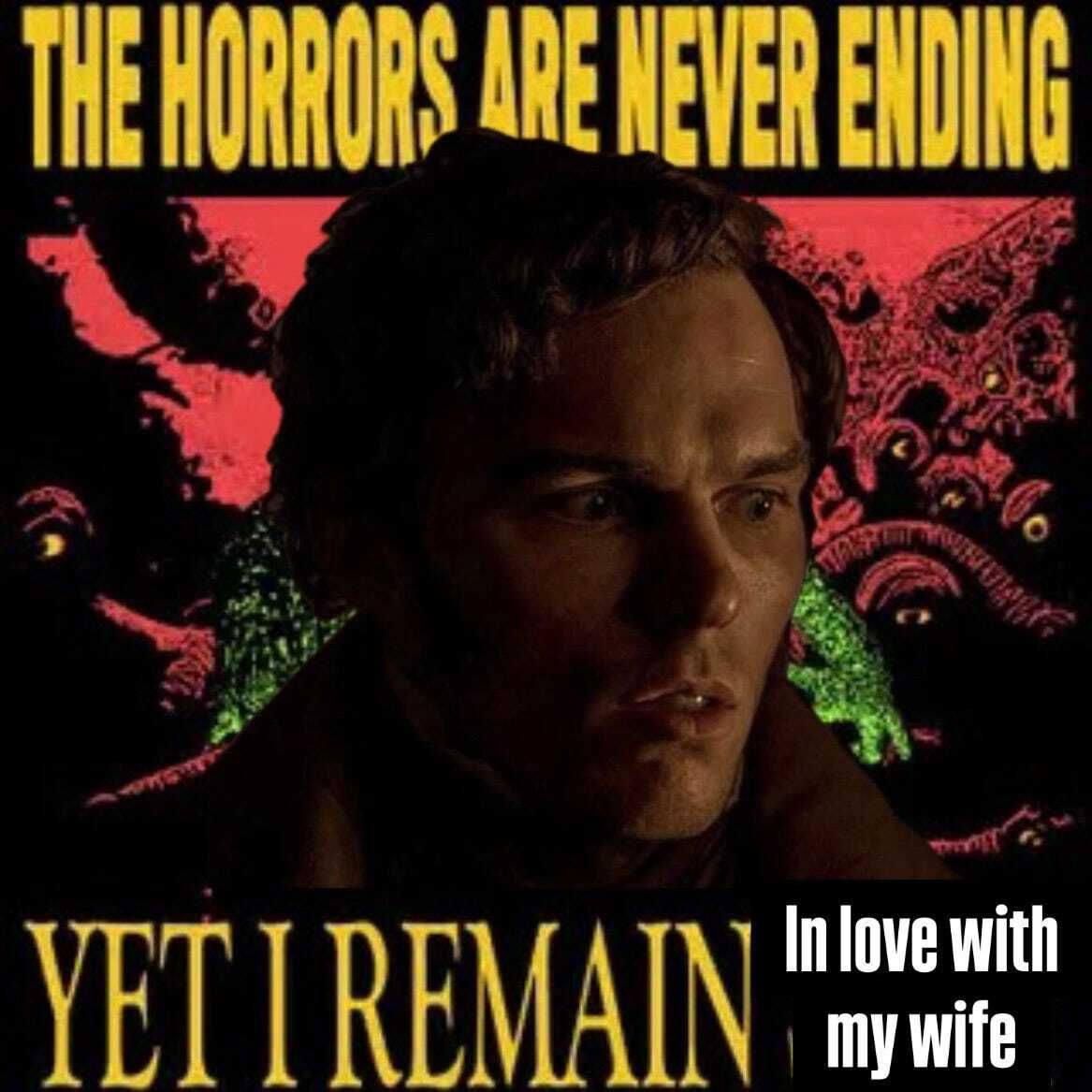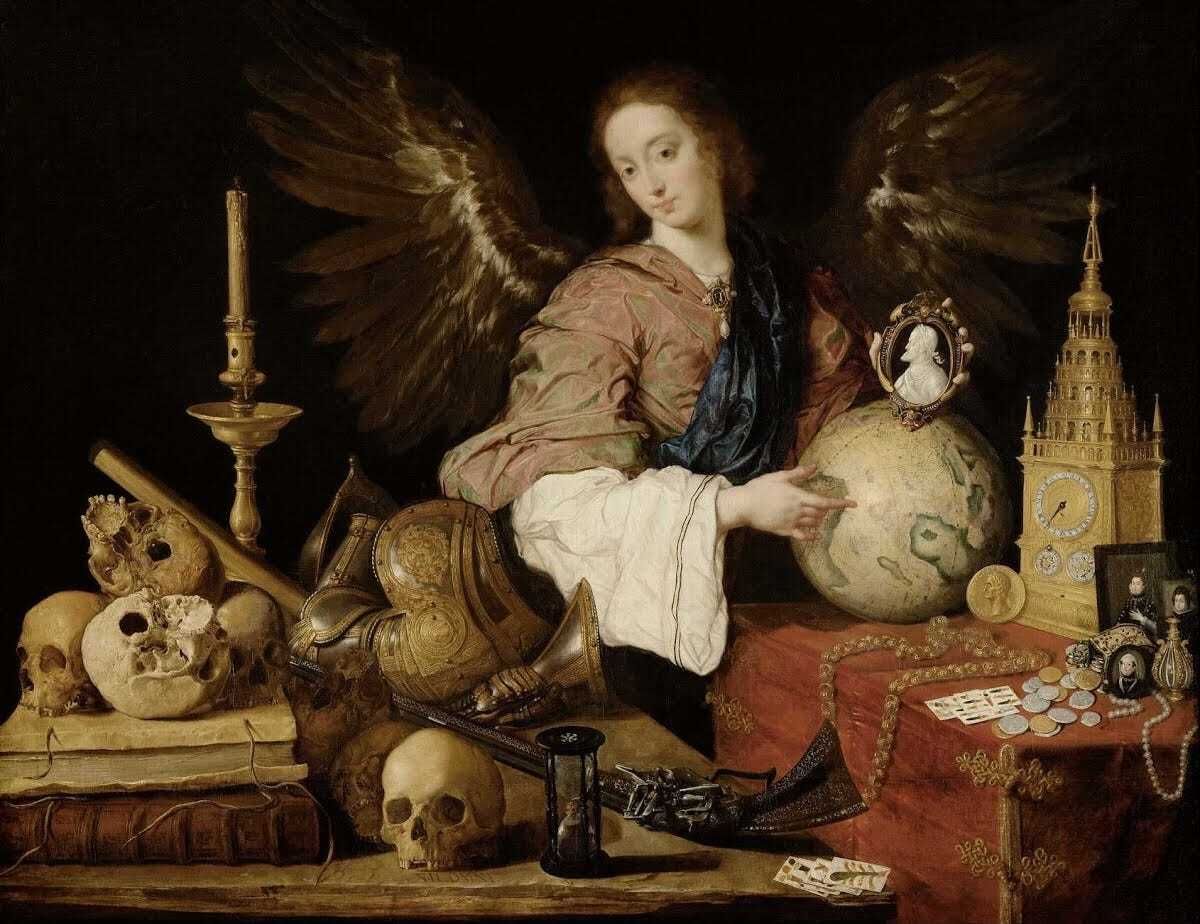Hey, Team.

Get used to it!!!!!
A quick fart before the plop: Gothic Literature and by extension the Gothic genre is historically for the Girls(™) and so I do believe that dissent towards Nosferatu will require a follow up sniff test for trace elements of misogyny. Issues with a female character’s emotions, motivations, questions of why her hint at a discomfort with a story that is whether you like it or not, a Girl(tm) experience with little room to allow in a non-Girl(tm) perspective. As for the question of agency, Ellen (Lily Rose Depp) is a Victorian woman in a Victorian society surrounded by the sensibilities of a European nation in the Victorian era: she’s not to be unaccompanied by a man, she’s not to cry out or express discontent. When she does attempt to speak up for herself, when she can no longer keep her roiling anguish and, let’s face it, demonic possession under careful displays of feminine serenity, she’s hit with the old one-two punch of ether and corseting. Professor Von Franz (Willem Dafoe) has a surprisingly modern approach to his interactions with Ellen: he asks her permission. His hypnosis of the young woman occurs after she grants him her consent to do so. He conspires with her in secret, stating the need for her sacrifice with a shame to even say it out loud. But Ellen, this would-be priestess of Isis (a goddess whose husband is a perpetual corpse, by the way), agrees with him, giving her full consent to a plan to defeat Orlok (Bill Skarsgård) that she knows will kill her.
Emotions traditionally run cranked to a full eleven in the Gothic genre, so I could give leeway to an audience member who’s either not privy to this style or simply not into that sort of thing. But the stiff test, oh the sniff test! Something as simple as demanding to know “Why does she cry so much but when she has to exert a modicum of responsibility for others she's conveniently calm? Isn't that inconsistent?” Yes, it would be inconsistent if she were a male character/character socialized as male. A livelihood of that sort allows for a constant torrent of extreme emotion fumbling your fingers and paralyzing your tongue. (Side note: this dichotomy is applicable to white, cishet experience, less so for everyone else, having to hold in your agony because somebody needs something from you is gender neutral when you leave the feather down realm of cishet whiteness. Please hold this caveat in your hand as you read on). This grace is not so for female/socialized female persons and characters -- you're not allowed to be sunken in your sorrow and terror when somebody needs something from you.
And now on with the show.
Ellen, someone who holds her fears close as an adult, has been trained to be withholding and secretive. This is agonizing for her. Everyone she ought to feel safe with (her father, physicians, her husband, her best friend) instructs that she mustn’t speak aloud what is churning within. She knows from the callouses surrounding her own heart that this denial only causes more pain and suffering in the long run– She cannot be silent any longer. Once the changeling girl who delighted the adults around her with her innocent expressions of second sight, in her womanhood everything that made her special has soured into a sin. She is blamed for the fears and ideas she inspires in those around her and so is restrained. Knowing there is nothing to be gained but death by remaining silent, she screams to be heard, a Cassandra whose prophecy is met with an instruction to fix her posture.

Indeed, there is a running theme of the joint futility and long term harm of suppressing emotions, memory and truth. Ellen’s dream of marrying death is a premonition of the plague to come. This is something she knows on an instinctual level, but as ever, is told to put these thoughts away. Her well-meaning husband Thomas (Nicholas Hoult), afraid of his beloved being put in danger, instructs, “Never speak these things aloud (...) Everything is well.” An insistence that nothing is amiss clings to this film’s cast of characters as they swirl like celestial bodies orbiting a great star of doom.
Another premonition comes from Ellen’s foil, Friedrich Harding (Aaron Taylor-Johnson). “I am to hunt a monster,” he says, amused by his cherubic daughters’ proclamations of terror that awaits them. They beg him not to let her (Ellen) feed them to the monster. He soothes them with a promise to instead of slaying any creature, “I will stay with you until you are fast asleep.”

Harding’s adversarial position towards Ellen is honestly some of my favorite character work within this story. They are foils of each other, and so when faced with their reflection, they are repulsed. Harding knows his “softness” is a weakness, he carefully controls his own emotions, expressing embarrassment when he allows it to be loosed (ie. his gasping and clutching at his chest when Von Franz pierces Ellen’s wrist with a long needle). He’s a person that has been trained to believe a person is not allowed to feel so clearly, let alone scream about what they feel. He snatches his hands from Ellen’s pleading grip and chastises her for her lack of restraint, demanding she learn her place. He’s deluded himself into thinking his manner is not only correct but kind. Tying Ellen up was for her own good, he would have himself believe, but the reality is he didn’t want her seizures to destroy his property. Through the lens of them as foils, his tying her up has a rather pointed message about his own held beliefs about what a person ought to do with themselves when faced with emotions larger than lust or mirth.
Harding is established as someone quite coddled, actually, and so the audience and surrounding characters form assumptions about his personal constitution– He comes from money and wealth and even though he works in a tough trade, he is managerial in a role inherited from his father. Simply put: he is someone you would never expect to have the capability to take on any hard labor. He’s someone you’d expect to recognize the name Paraselcus, and be surprised when, instead of understanding, he huffs “I’m a shipman.” He is able to relish the privileges that come with being a man, having employment, free access to society without chaperone, a voracious appetite for his wife, alcohol and tobacco. But when he has the gumption to go absolutely insane with grief and illness after the massacre of his beloved family, he is treated as delicate and in need of tightening up. Surrounded by his fellow men, he apologizes for being out of sorts, his tears and fever ignored as plans are spun around him.
During my second watch I began to wonder if maybe he even envies Ellen for her overwhelming emotion. He refuses his own feelings beyond affection for his daughters and desire for his wife. Things that are proper. Until they are not. He is almost constantly touching his wife, he clings to her, she is his strength and his talisman of safety and normalcy. “Everything will be well, my darling,” he says, damning them all. If Ellen’s scars are within, Harding’s are decidedly without. Sores from his plague infection bloom on the cheek Orlok’s shadowy hand swept to ensure the robbery of Harding’s most precious treasures. His eyes are bloodshot, capillaries bursting from his sobs and griefsodden bellowing. His family is lost, and so he does what he thinks to be proper: he soothes his eternally sleeping girls and lays with his wife, succumbing to his illness and despair in her lifeless embrace. His peers burn him and his family, sanctifying a scene that would otherwise be deemed unholy and depraved. His story is the fun house mirror of Ellen’s: she dies under the blaze of sunlight for the salvation of the living who stay by her side as she fades away. Harding’s inaction causes his family to perish and he expires among the dead, disposed bythe blaze of torches.
Imagery of memento mori flow from one scene to the next; candles burn, flowers are cut–the bouquet of lilacs gifted to Ellen distress her not just for the fact they are already dead but also within the Victorian language of flowers lilacs represent first love meaning Thomas unwittingly instructed his wife to recall her past union with the Nosferatu– and the ticking of clocks follow Thomas all the way to the crossroads where time stops at last. Clocks flanked by the elements note the time, their machinery sounding near torrential downpour and roaring fires. When Thomas arrives at the Carpathian village near Orlok’s castle, the living rush to surround him like white blood cells chasing down a pathogen. Laughter dogs his steps as closely as the clocks. From the giddy chuckles erupting from Knock (Simon McBurney at his most little freak), barely concealing his duplicity– I saw you slap that deed over the arcane language of Orlok I saw you! – to the entire village Thomas seeks shelter with erupting into laughter. His endeavor is a farce. He is an interloper, naive and unable to understand the gravity of his situation, let alone defend himself when it comes crashing down on him. In this village, he is a voyeur. He sneaks in the shadows of a hunt for the undead guided by a naked virginal woman on a horse. He cries out a prayer, terrified by a ritual he cannot comprehend, and wakes, only to find by the mud caked on his boots it was no dream. What is real and what is fantasy is a lesson that will be hard-learned.

The crossroads, once a place used to bury those dead by suicide, is where Thomas halts his trek. A driverless carriage beacons. Dazed, he floats in. An image that crops up in Eggars’ works, and something I would point to on my list of identifiers of him as an auteur, is the figure wading into their doom. Ocean waves lap at Tom’s chin as he is frozen by the vision of great logs floating toward him, a signal that his past is his nature and it will consume him. Amleth drifts under the moonlight into the temple of a priestess seer who grips his fate with her words. Thomasin at last approaches the roaring fire of the coven in the wood. Here, at this crossroads and in this carriage, time and life untouched by the stain of hunger and death halts. The Thomas who cheerfully kissed his wife and complained about cat fur on his clothes dies here—and it is a suicide. The time pieces that followed him vanish. Time stops in Orlok’s castle, or rather it runs out.
It is in this castle Thomas is, essentially, repeatedly raped. He is tormented by nightly assaults he struggles to remember, having only marks on his flesh to hint at what has been taken from him. Orlok forces visions of Ellen into Thomas’ eyes, poisoning their union– he later flings his wife away from him in a night terror, her face superimposed on his trauma. Poisoned by illness, fear, and drained of his blood, Thomas is crushed in the rotting palm of his host. The room where he deliriously signs away his love recalls Antonio de Pereda’s “Allegory of Vanity.” Coins spill from the purse Orlok tosses at Thomas, candles burn bright in candelabra, a skull sits on a stack of books, tomes rest wide open, their pages exposed and left unread. The vanitas scene composed here engulfs Thomas, his tall stature is dwarfed by the claustrophobic collection of memento mori pressing in around him.

Allegory of Vanity, Antonio de Pereda (1632-1636)
The significance of instinct vs reason drifts around characters and how they strike the balance determines their fate. Those who insist upon logic, reason, established structure are damned (the Hardings). Those who follow only their instinct are candles burning brightly and do not live long but do live with great purpose (Ellen). “I’ve done no evil but heed my nature,” a delicate way to remind us of the old adage “I yam what I yam.” She relies on instinct and a faith in herself. While it is admonished by society she holds true to it knowing it is the only way for her to live. Those who balance these halves, or move humbly with deference to the halves, live on. Thomas begins as a man who relies on reason and structure. He doesn’t deny his wife’s visions or fears in terms of their veracity but rather smothers them out of fear that they will cause her and by extension him harm within the rigid structures around them. He cannot believe, for his own sake, there is a dark and terrible force larger than any can face alone. This leads to his first death at the crossroads, his suicidal jump (fall?) from Orlok’s castle and then resurrection in the gilded walls of a down river church. He finally listens to instinct after being subjected to the horrors of the dead and the recitations of the devout. This is a huge development: he signed the contract despite having clear misgivings, three times he hesitated to do it but crumpled eventually. Also let’s be real here he was running at half blood capacity, no sleep, and all fear, some grace for Thomas, please. Professor von Franz follows instinct. He followed it to this city to do battle with death itself. He is the balance of Ellen’s full tilt embrace of divination and the reality-bound ideals of “reasonable” men. He is humbled by his knowledge, aware that there is plenty yet he doesn’t know or understand. Dr. Sievers (Ralph Ineson), decidedly a man of medicine, makes his choices with careful consideration. He turns to his teacher and friend knowing that though it would be humiliating in his professional community, it is the right thing to do. For all the corseting and bloodletting and ether, he practices medicine with as much mercy as he can wield within such a brutal (at the time) practice. He, von Franz, and Thomas live on. And to what end does Thomas live on? He holds his wife’s fragile hand as she dies and kisses her rapidly cooling fingertips. The shuddering breath that escapes him is a wheeze uncannily similar to the death rattles that escaped Orlok. In his grief Thomas emulates the Nosferatu, by his actions and inactions, his ignorance and fear, he is forced to continue living, his heavy footfalls landing in the dust of the kingdoms that have crumbled at his feet.
Leftover jotted notes from my rewatch:
Providence, Greta, Lilacs, Silf, contract/covenant, devourance, Solomonari, redemption
Orlok clings to normalcy, the illusion of wealth, the artifice of class and power. Reminds me of ancient politicians refusing to retire and landed gentry too obsessed with whichever cousin they married to get a job
Is Orlok wearing steel toed boots? Linda? Weigh in?
Orlok refers to the documents as “covenant papers”
If you view blood as the soul it makes who you drink from and how very significant the context is of how it is taken. Willingly given vs forcibly taken.
“Blood is for life” lol
To defeat the darkness, we must first acknowledge it exists = stop fucking saying everything is going to be all right
Interestingly timed film considering pandemics, fear of the other, fear of community, fear of intentionally obscure power structures
Orlok deals in coercion, not transaction.
The altar was behind Thomas and the sigil below his feet
Orlok sure does push a lot for a guy that insists on consent
First death on the Demeter is a youth
Knock und Cle (which I keep accidentally calling Lock and Key) is an office populated by geriatrics tended by a youth. Thomas is fresh blood in this desicated vein.
Girl this is a winter’s night she’s been getting supped for like 12 hours she really does have a surplus of blood
The first “good for her” story where her dies
Definitely take some time out of your day to look up art symbolism for skulls, books, time pieces, bird cages— it’s neat! Sure the curtains could just be fucking blue here but Eggers’ Muir and co. are a wildly detail oriented and research heavy crew. Perhaps the curtains are a period-accurate blue ever thought of that, asshole???
New Year’s Resolutions:
Read 50 books - this year I logged 30 which is a massive jump considering previous years where finishing one was a major achievement
Commit to ASL at least five minutes of lessons and/or practice every night
Commit to Arabic at least ten minutes of lessons and/or practice every day
Commit to Spanish at least ten minutes of lessons and/or practice every day
Keep posting in this substack so my brain will stay in motion/I can poop out my obsessive thoughts immediately, ensuring they become someone else's problem
Attempt my mom's college days haircare
Give in to the audacity impulses -- this is mostly related to dying some of my clothes black
At the very least touch a banjo (I want to learn to play banjo but I'm not rushing it)
Eat more pickles!
Oh one more thing: it’s my mom’s birthday! Happy Birthday to the best Capricorn stereotype in the biz! I’ll make sopapillas in your honor this weekend.
